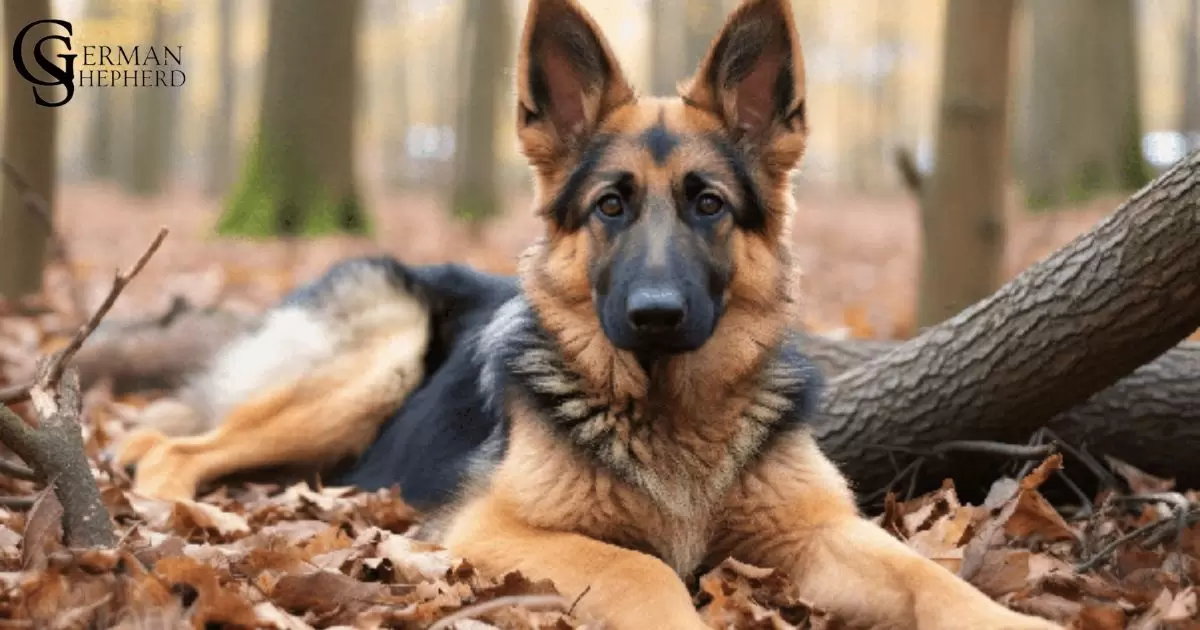Owning a 6-month-old German Shepherd brings excitement and challenges. At this stage, expect energetic behavior and a growing curiosity. Training consistency and positive reinforcement will shape their developing personality.
Embarking on the journey with your 6-month-old German Shepherd brings joy and challenges. Wondering how to handle their boundless energy and curious behavior? Discover what to expect as your playful companion enters a crucial phase of growth and development.
A 6-month-old German Shepherd is in the midst of puppyhood, full of energy and curiosity. Expect them to be playful and eager to learn commands. This stage is crucial for socialization, so expose them to various environments and people. Regular exercise, basic training, and positive reinforcement will help shape a well-behaved and happy companion.
Understanding the 6-Month Milestones
Here’s a table with 10 points about understanding the 6-month milestones in a child’s development:
| Point | Milestone Aspect | Description |
| 1 | Physical Development | At six months, most 6-month-old German Shepherds can sit with support and may start to roll over. Some may even begin to show signs of crawling or attempting to move independently. |
| 2 | Motor Skills | Grasping objects is a significant milestone at this age. Babies can now pick up and manipulate toys, improving their fine motor skills. |
| 3 | Communication Skills | Babbling becomes more varied and may resemble real speech sounds. Responds to familiar voices and may start to imitate simple sounds or gestures. |
| 4 | Social Interaction | Shows interest in others and may smile or laugh in response to interactions. Develops a stronger bond with caregivers and recognizes familiar faces. |
| 5 | Cognitive Development | At 6 months old, a German Shepherd begins to understand cause and effect, such as dropping a toy and observing it fall. Shows curiosity about the environment and explores objects with increased focus. |
| 6 | Vision and Depth Perception | Visual acuity continues to improve, and depth perception develops, allowing the baby to judge distances more accurately. |
| 7 | Sleep Patterns | Sleep patterns may start to become more regular, with longer periods of nighttime sleep and shorter, more predictable daytime naps. |
| 8 | Introduction to Solid Foods | Many babies are ready to start introducing solid foods around six months. This is a crucial step in their nutritional development. |
| 9 | Emotional Development | Exhibits a range of emotions, including joy, frustration, and even some early signs of empathy. Responsive to parental emotions and expressions. |
| 10 | Sensory Awareness | Demonstrates increased awareness of the surroundings through sensory exploration, such as feeling different textures or responding to various sounds. |
Understanding these milestones helps parents and caregivers monitor a child’s development and provide appropriate support and stimulation during this crucial stage.
Developmental Stages at 6 Months

At six months, babies are hitting key milestones. They can sit, roll over, and some may even start crawling. Their hands are becoming adept at grabbing and exploring objects.
Babbling and responding to voices show early communication skills, while social interactions involve smiling and laughter. Cognitive development is evident through cause-and-effect understanding and improved vision enhances their perception of the surroundings.
Sleep patterns become more regular and solid foods are introduced. Babies express a wider range of feelings and begin recognizing emotions in others. This stage is marked by joyful sensory exploration as babies engage with their environment.
6 Month Old German Shepherd Behavior
At six months old, a German Shepherd exhibits energetic and playful behavior. These pups are in a crucial stage of development, displaying a curious and explorative nature.
They may start testing boundaries and engaging in more interactive play, showcasing their intelligence and eagerness to learn. Socialization remains vital during this period, helping them become well-adjusted and friendly adults.
It is common for them to have bursts of energy, requiring regular exercise and mental stimulation to keep them happy and healthy. Consistent training and positive reinforcement are essential for shaping their behavior and establishing a strong bond with their owners.
- Energy Levels:
- At six months old, German Shepherds are still energetic and playful, but their energy levels may have increased compared to earlier months.
- They require regular exercise to channel their energy positively and prevent boredom-related behavior issues.
- Teething and Chewing:
- Teething is a common occurrence around six months, leading to increased chewing behavior.
- Provide appropriate chew toys to soothe their gums and prevent them from damaging household items.
- Socialization:
- Continued socialization is crucial during this stage to ensure your German Shepherd becomes well-adjusted and comfortable in various environments.
- Expose them to different people, animals, and experiences to build their confidence.
- Training Progress:
- Basic obedience training should be well underway, but consistency is key at this stage.
- Focus on commands like sit, stay, and recall, reinforcing positive behavior with treats and praise.
- Independence and Bonding:
- German Shepherds may start exhibiting more independence while still maintaining a strong bond with their owners.
- Foster a healthy balance by allowing independence within safe boundaries and reinforcing the bond through quality time together.
- Protective Instincts:
- Protective instincts may start to emerge, making them more alert and responsive to their surroundings.
- This is a natural trait, but it is important to guide and manage this behavior to ensure it does not become overly aggressive.
- Establishing Hierarchy:
- The pup may challenge boundaries to establish its place in the family hierarchy.
- Maintain a consistent leadership role through positive reinforcement, clear rules and boundaries.
- Exercise Requirements:
- Adequate physical exercise is essential to prevent behavioral issues arising from excess energy.
- Plan for daily walks, playtime and mental stimulation to keep them engaged.
- Puppy Adolescence:
- At six months, German Shepherds are entering their adolescence phase, marked by hormonal changes and potential rebellious behavior.
- Be patient and consistent with training, understanding that this phase will pass with time.
- Health Monitoring:
- Regular veterinary check-ups are crucial at this age to ensure proper growth and development.
- Discuss with the veterinarian about the appropriate diet, vaccinations and any health concerns specific to German Shepherds.
Healthy Growth Patterns

Healthy growth patterns are important for our bodies to become strong and fit. Eating nutritious food, like fruits and vegetables, helps us grow properly. Drinking water is also crucial to keep our bodies hydrated and functioning well.
Getting enough sleep at night is like a superpower for growth, making us feel energized and ready for the day ahead. Regular exercise, like playing outside or doing sports, is fun and keeps our muscles and bones strong.
It is important to listen to our bodies and eat when we are hungry, stop when we are full, and not skip meals. When we follow these healthy habits, we give our bodies the right ingredients to grow and stay strong.
In addition to physical health, our minds also need care for healthy growth. Learning new things at school or through books and playing games that challenge our brains are like exercises for our minds.
Spending time with friends and family helps us feel loved and supported, contributing to our overall well-being. It’s okay to take breaks and relax, as our minds need rest too. When we have a balance of healthy habits for our bodies and minds, we set the stage for positive growth, making us feel happy, strong and ready for whatever comes our way.
Size And Weight Of 6-Month-Old German Shepherd
| Aspect | Size and Weight of 6-Month-Old German Shepherd |
| Average Weight | Approximately 45-60 pounds |
| Height at Shoulder | Around 20-24 inches |
| Growth Rate | Growing rapidly, gaining 1-2 pounds per week |
| Proportionate Build | Well-proportioned body with strong muscles |
| Individual Variations | Some may be slightly smaller or larger based on genetics and diet |
These are general guidelines and individual dogs may vary. Consultation with a veterinarian is always recommended for specific care and nutrition requirements based on the health and development of the specific German Shepherd.
Common Health Concerns

- Respiratory Infections: Respiratory issues, such as colds and flu, are common health concerns that can affect individuals, especially during seasonal changes or in crowded environments.
- Musculoskeletal Problems: Conditions like arthritis, back pain, and muscle strains are prevalent health concerns, often related to aging, poor posture, or physical injuries.
- Mental Health Challenges: Mental health concerns, including anxiety and depression, affect a significant portion of the population, emphasizing the importance of mental well-being.
- Cardiovascular Diseases: Heart-related issues, such as hypertension and heart disease, are common health concerns influenced by factors like diet, exercise, and genetic predisposition.
- Diet-Related Conditions: Poor nutrition can lead to various health concerns, including obesity, diabetes and nutritional deficiencies, highlighting the importance of a balanced diet for overall well-being.
Nutrition Guidelines for a 6-month-old German Shepherd

Proper nutrition is vital for the healthy growth of a 6-month-old German Shepherd. Make sure to feed them a balanced puppy diet with the right mix of proteins, fats and carbohydrates to support their development. This helps them grow strong muscles and maintain a healthy weight.
As your German Shepherd reaches the 6-month mark, consider transitioning them to adult dog food gradually. This change supports their changing nutritional needs. Additionally, pay attention to any special requirements your pup may have, such as specific supplements or treats. A well-balanced diet ensures your furry friend stays energetic, happy, and ready for all the adventures ahead.
Recommended diet plans and treats
- Balanced Meals: Provide a well-balanced diet consisting of high-quality commercial dog food or a veterinarian-recommended homemade diet. This should include proteins, fats, carbohydrates, vitamins, and minerals essential for overall health.
- Portion Control: Measure your dog’s food portions to prevent overfeeding or underfeeding. Adjust the quantity based on factors such as age, weight, activity level, and individual metabolism.
- Puppy-Specific Formulas: Opt for puppy-specific formulas designed to meet the nutritional needs of growing German Shepherds. These formulas typically have higher protein and calorie content to support their rapid development.
- Transition to Adult Food: Consider transitioning to adult dog food around the 1-year mark. Gradually introduce the new food to avoid digestive upset, and choose a high-quality adult formula suitable for German Shepherds.
- Fresh Water: Always provide fresh water to keep your dog well-hydrated. Hydration is crucial for various bodily functions, including digestion and temperature regulation.
- Avoid Human Food: Refrain from feeding your German Shepherd human food, especially items toxic to dogs such as chocolate, onions, and grapes. Stick to dog-friendly treats and snacks.
- Healthy Treat Options: Choose healthy treats like small pieces of fruits (e.g., apple slices or blueberries) or vegetables (e.g., carrots). These treats offer vitamins and minerals without excessive calories.
- Training Treats: Use small, low-calorie treats for training purposes. This encourages positive behavior without contributing to excessive weight gain.
- Dental Health Treats: Incorporate dental treats or toys to promote oral health. Chewing on appropriate items can help reduce plaque and tartar buildup.
- Consult with a Veterinarian: Regularly consult with your veterinarian to assess your German Shepherd’s dietary needs. They can provide personalized advice based on your dog’s health, age, and any specific conditions.
Top of Form
Transitioning to Adult Food

As your German Shepherd grows up, it is important to switch them to adult dog food when they are about 1 year old. This transition is necessary because adult dogs have different nutritional needs than puppies. To make the change smooth mix a little bit of the new adult food with their current puppy food.
Gradually increase the amount of adult food while decreasing the puppy food over about a week. This helps your dog’s digestive system adapt to the new food. Adult dog food provides the right balance of nutrients to support your German Shepherd’s overall health and well-being.
It has what they need for their more mature stage of life. If you have any questions or concerns about the transition, it is always a good idea to check with your veterinarian for personalized advice based on your dog’s specific needs and health status.
Balancing Play and Exercise for a Growing 6-Month-Old German Shepherd
For a 6-month-old German Shepherd, it is important to strike a balance between play and exercise. Allow them to play freely to develop their social skills and have fun. Mix in short, age-appropriate exercises to help build strong muscles and maintain a healthy weight. Pay attention to their energy levels and remember that a combination of play and exercise contributes to a happy and healthy growing pup. Always consult with your veterinarian for guidance on suitable activities based on your dog’s individual needs.
Here are some highlights about importance of physical activity:
- Weight Management: Physical activity helps maintain a healthy weight by burning calories and promoting metabolism.
- Muscle and Bone Strength: Regular exercise strengthens muscles and bones, enhancing overall physical strength and resilience.
- Cardiovascular Health: Engaging in physical activity contributes to a healthy heart and circulatory system, reducing the risk of cardiovascular diseases.
- Mood Enhancement: Exercise releases endorphins, promoting feelings of happiness and reducing stress and anxiety.
- Coordination and Flexibility: Physical activity improves coordination, balance and flexibility, supporting better overall physical function.
- Improved Sleep: Regular exercise is associated with better sleep patterns, leading to increased energy levels and overall well-being.
- Active Lifestyle: Incorporating physical activity into daily routines encourages a more active and fulfilling lifestyle.
- Enhanced Cognitive Function: Exercise is linked to improved cognitive function, including better concentration and memory.
- Social Engagement: Participating in group activities or sports promotes social interaction, fostering a sense of community and well-being.
- Long-Term Health Benefits: A physically active lifestyle is associated with a reduced risk of chronic diseases and contributes to a longer, healthier life.
Maintaining a Healthy Coat

To ensure your German Shepherd’s coat stays healthy, regular grooming is essential. Brush your dog’s double coat at least once a week to remove loose fur and prevent matting.
Use a suitable dog shampoo during baths to keep the coat clean and promote a healthy skin condition. Provide a balanced diet with proper nutrients to support coat health from the inside out.
This simple routine not only enhances the appearance of your dog but also contributes to its overall well-being, keeping the coat shiny, smooth and free from common issues.
FAQ’s
How long should a 6 month German Shepherd sleep?
A 6-month-old German Shepherd typically needs around 14 to 16 hours of sleep per day.
Can you train a 6 month old German Shepherd?
Yes, you can and should train a 6-month-old German Shepherd; this is a crucial age for obedience and socialization.
At what age do German shepherds start barking?
German Shepherds often start barking around 4 to 6 months old as they become more aware of their surroundings and develop protective instincts.
At what age German Shepherds become territorial?
German Shepherds typically begin to exhibit territorial behavior around 6 to 12 months of age as their protective instincts develop.
How smart is a 6 month old German Shepherd?
At 6 months old, a German Shepherd is highly intelligent and trainable, showing signs of problem-solving abilities and quick learning.
Conclusion
In conclusion, caring for a 6-month-old German Shepherd involves a combination of physical and behavioral considerations. Their energetic nature calls for regular exercise and playtime to channel their energy positively and prevent boredom.
Obedience training and socialization during this phase are vital, as they help shape the dog’s behavior and responsiveness, creating a foundation for a well-behaved adult German Shepherd. Attention to grooming, proper nutrition and regular veterinary check-ups contribute to the overall well-being of the dog.
This stage is a critical period for building a strong bond through consistent care and positive reinforcement. With the right guidance and attention to their needs, a 6-month-old German Shepherd can grow into a well-adjusted, obedient and affectionate companion.
Click on this link to get more information “Bi-Color German Shepherd: What You Need to Know Before Owning One“











